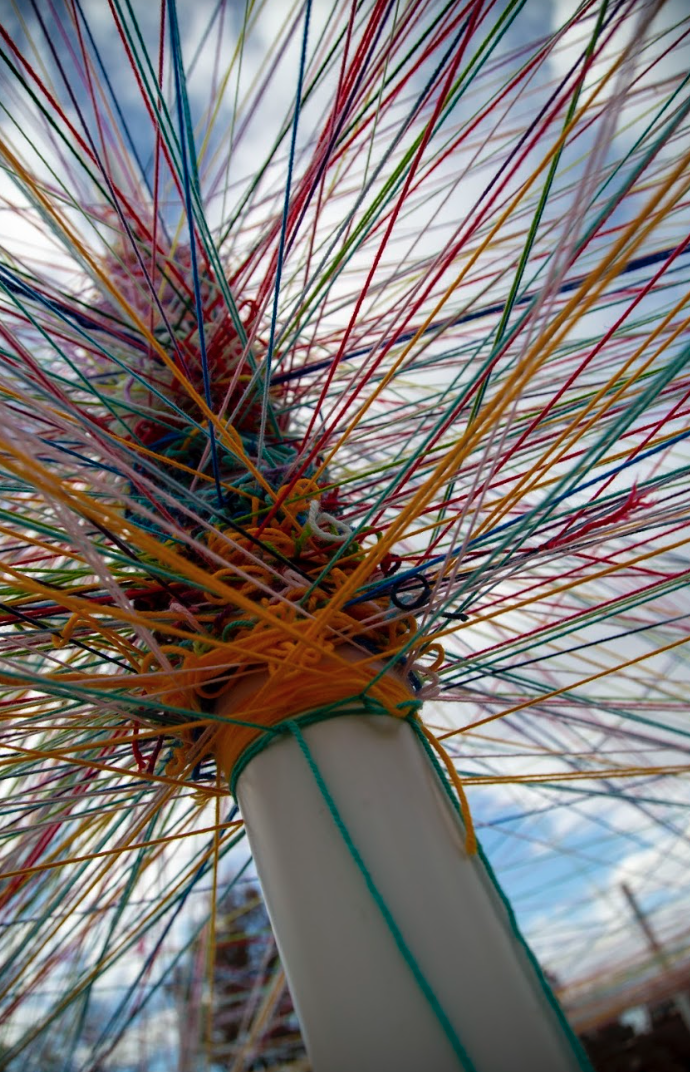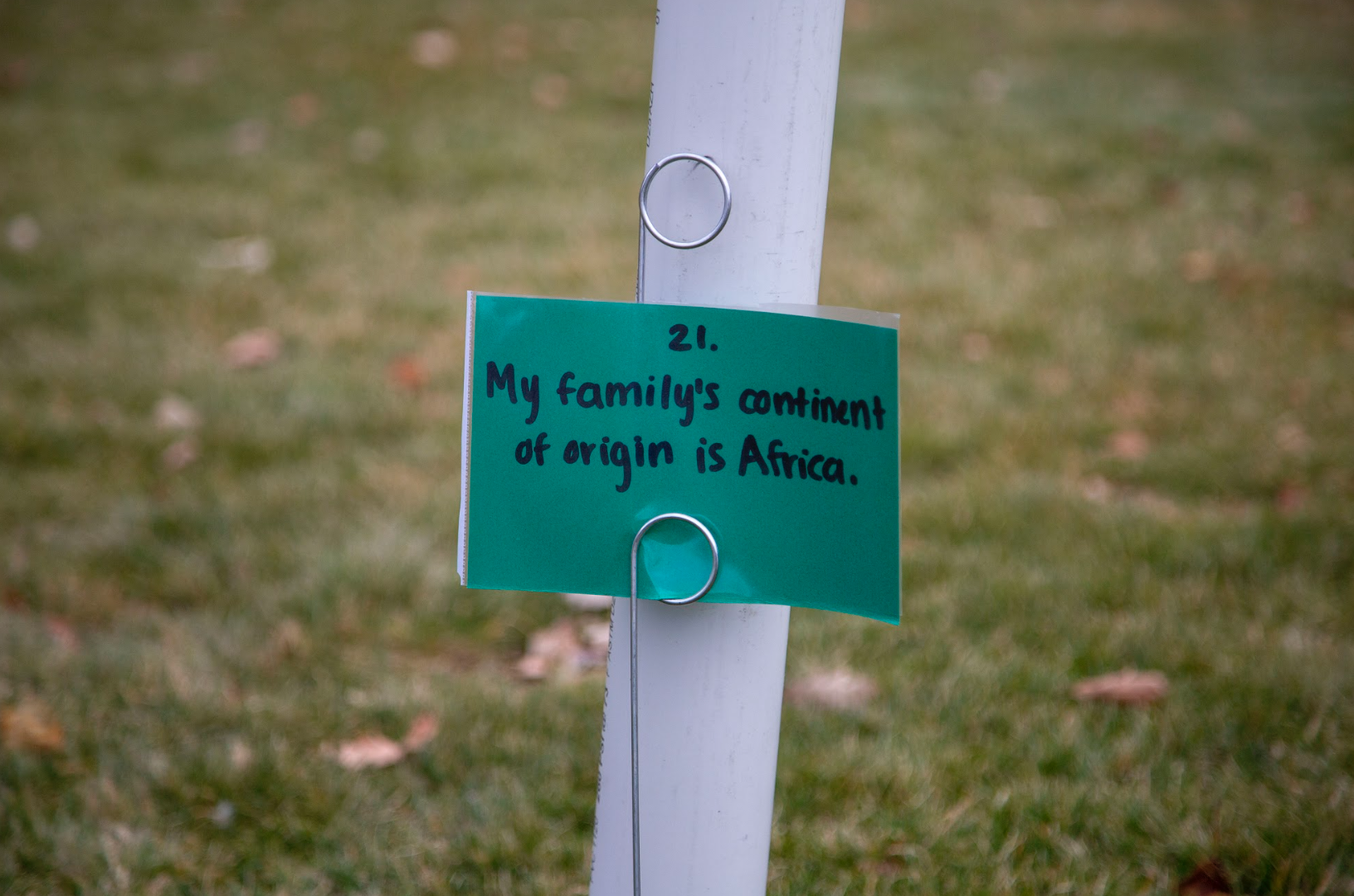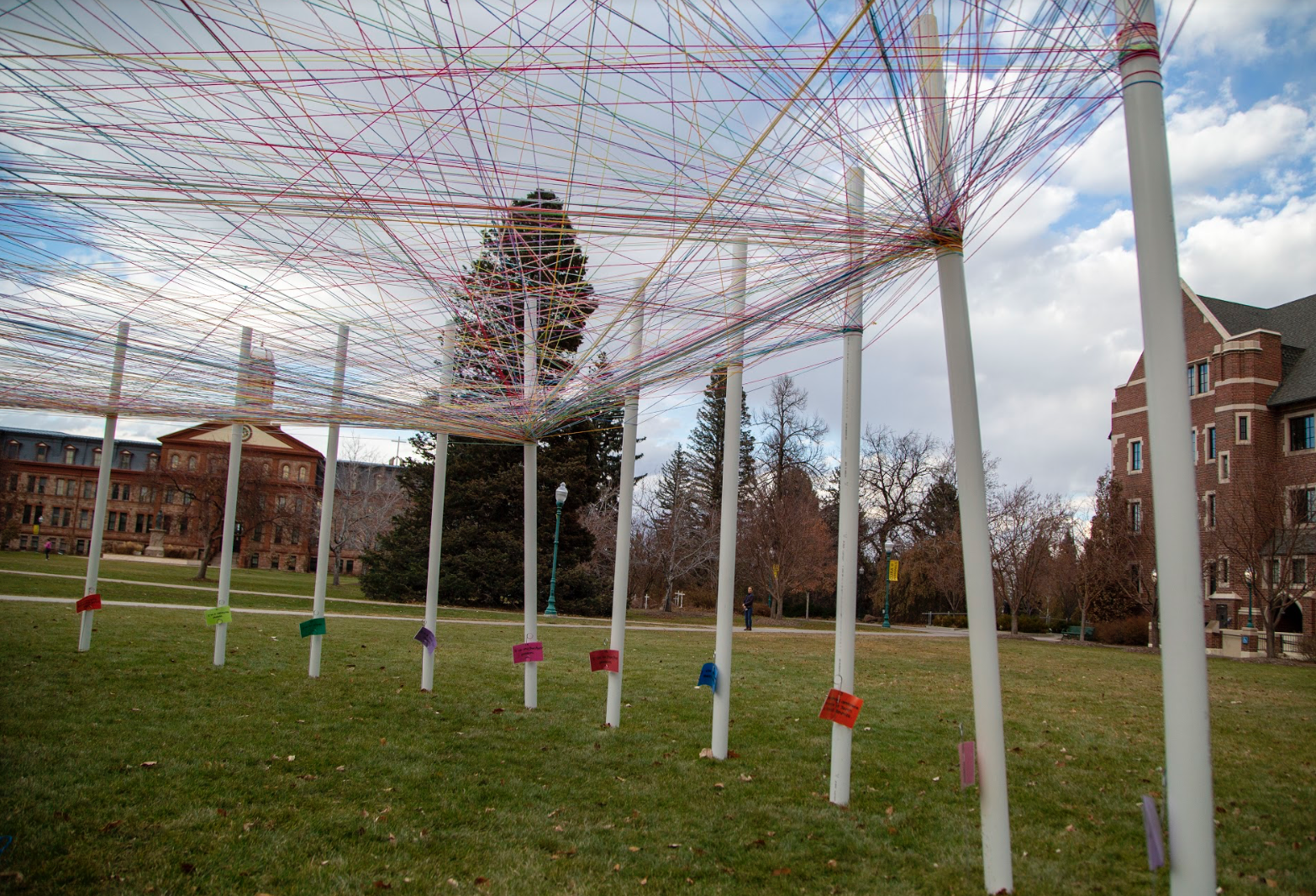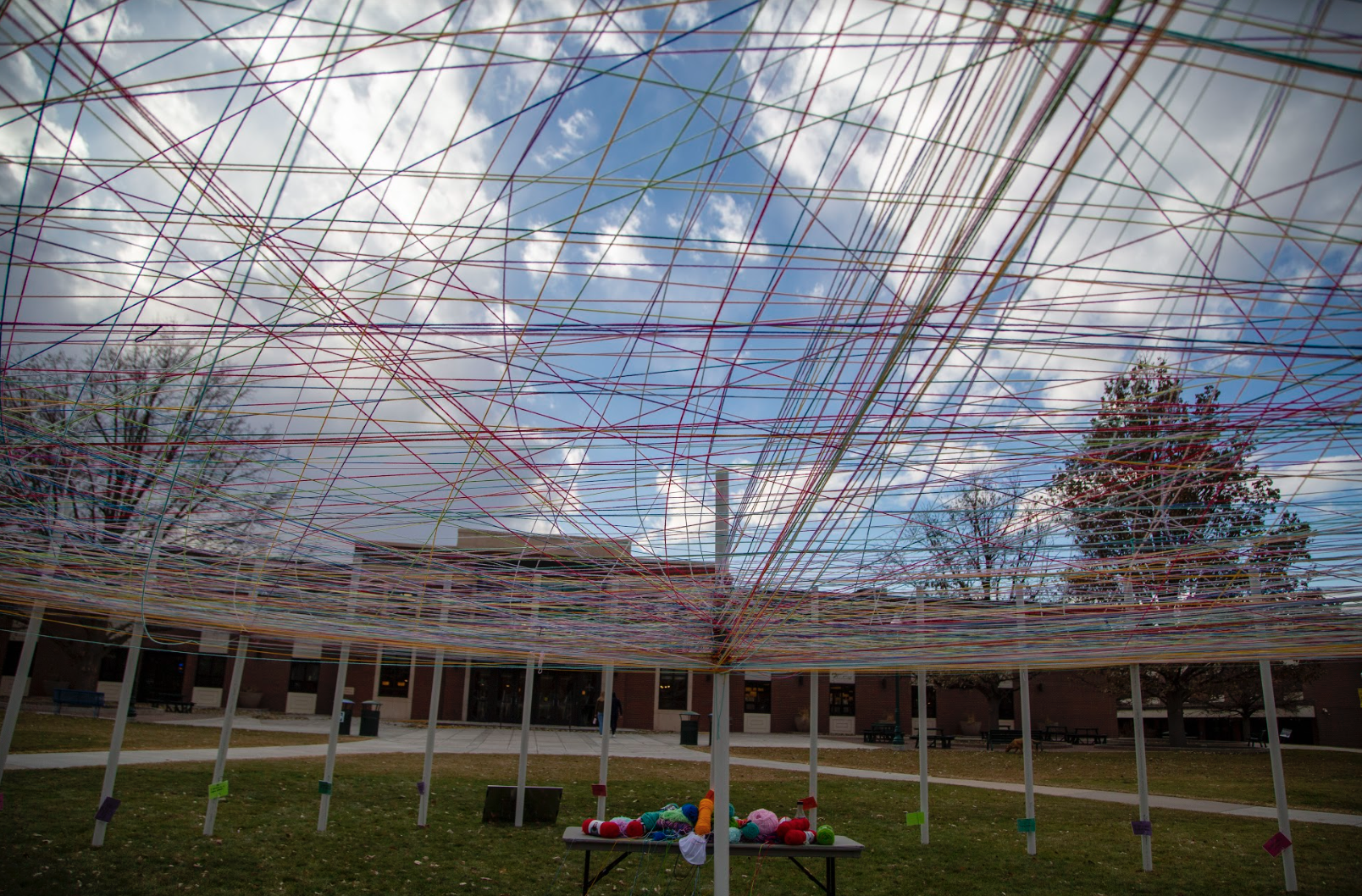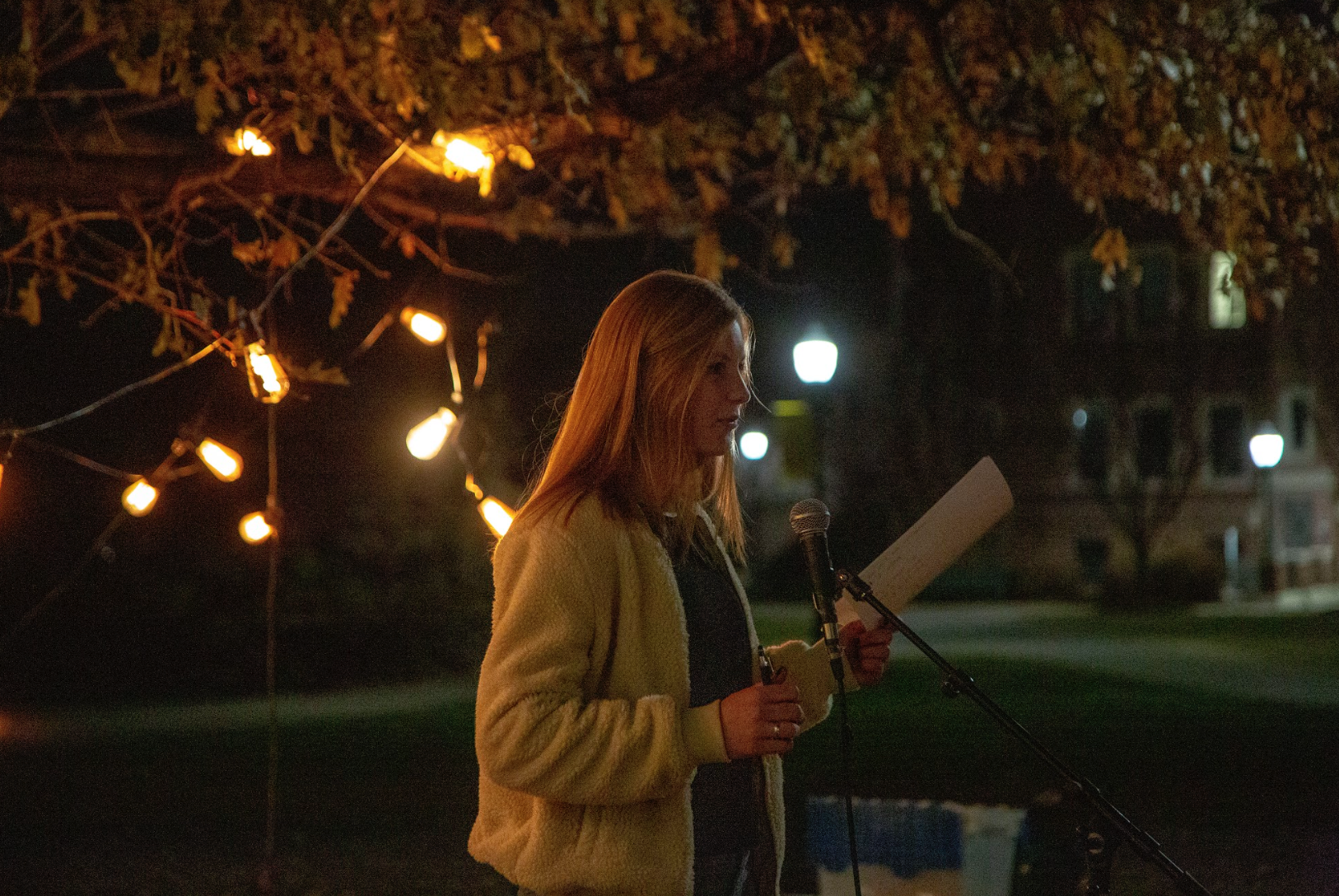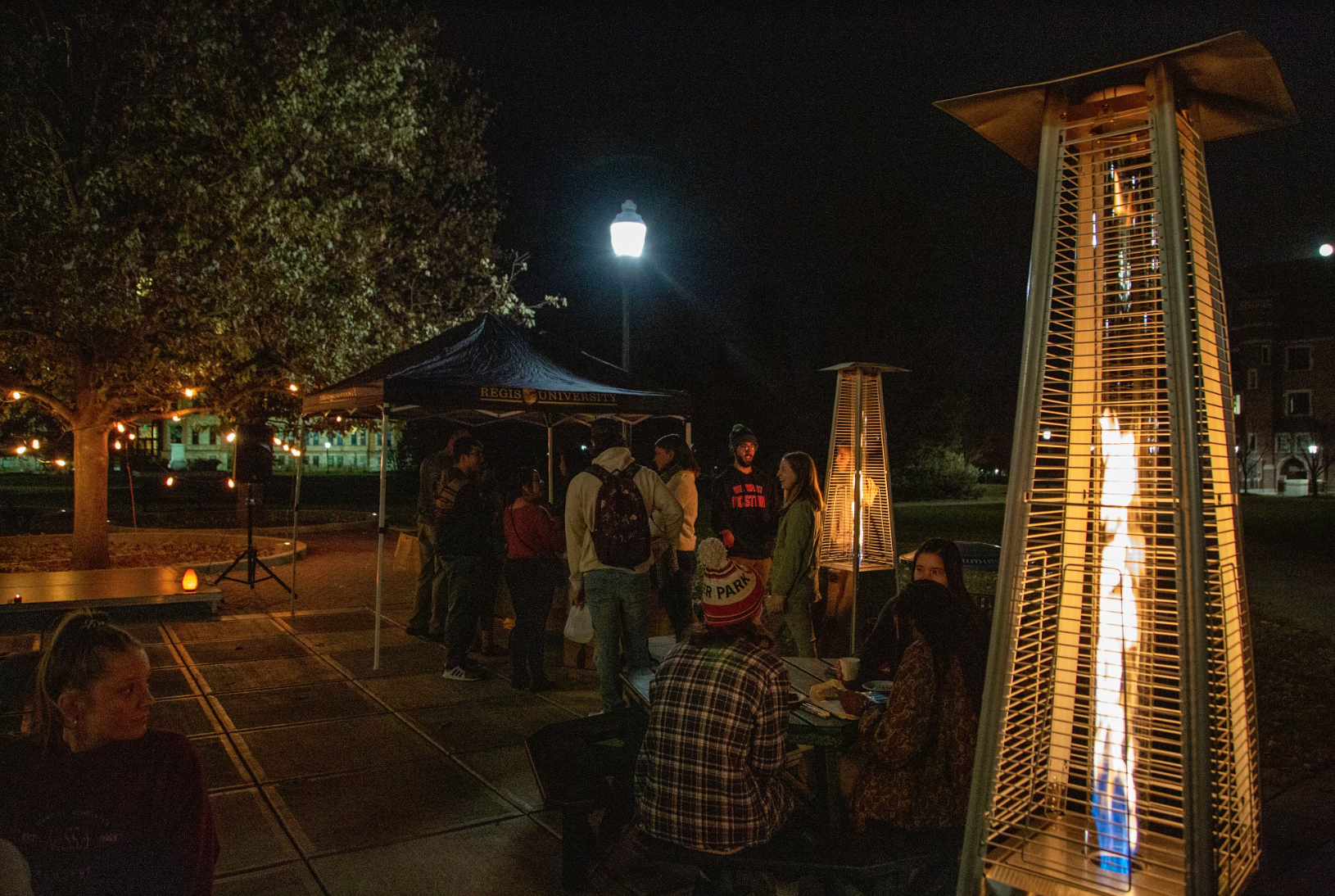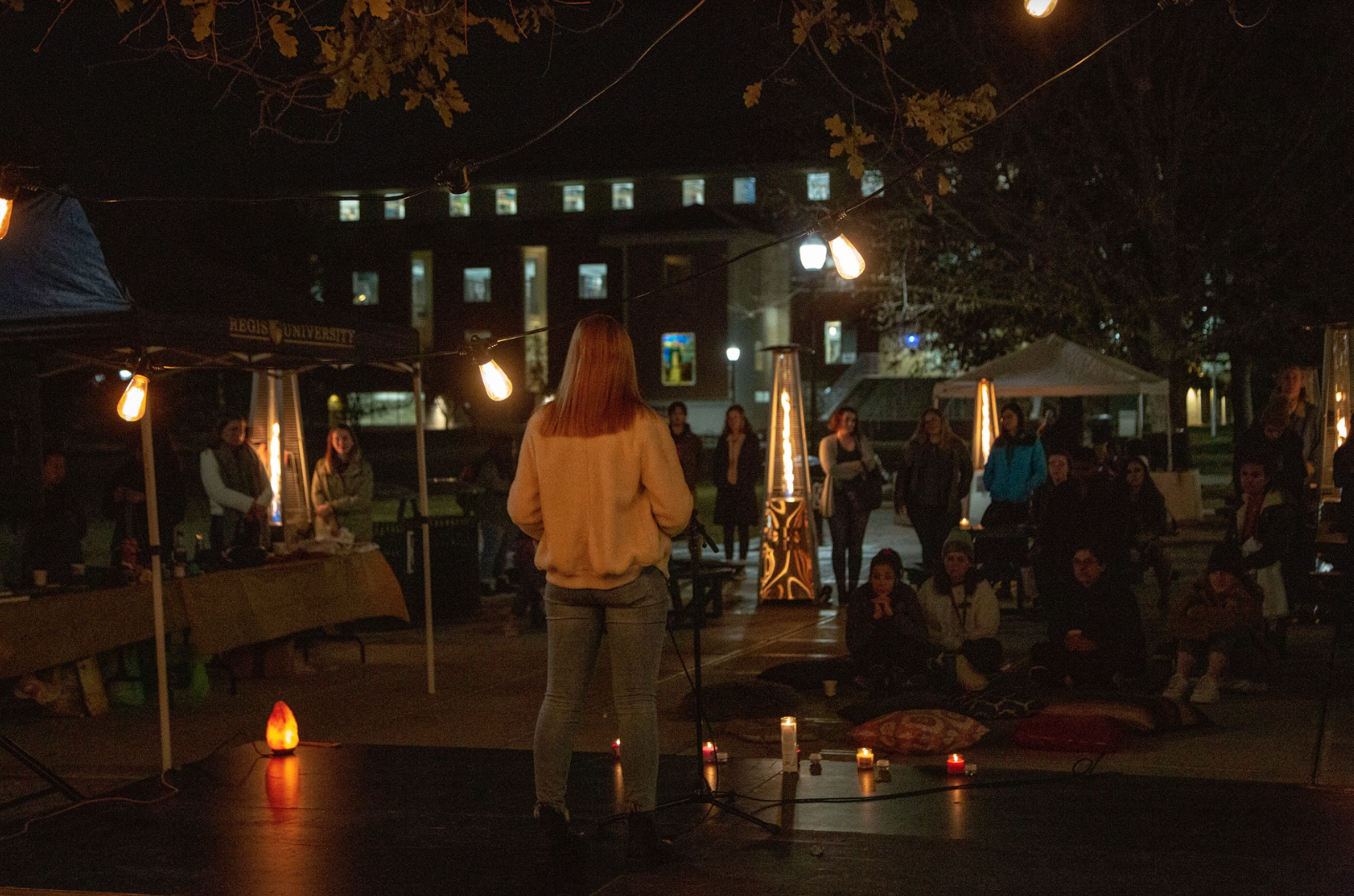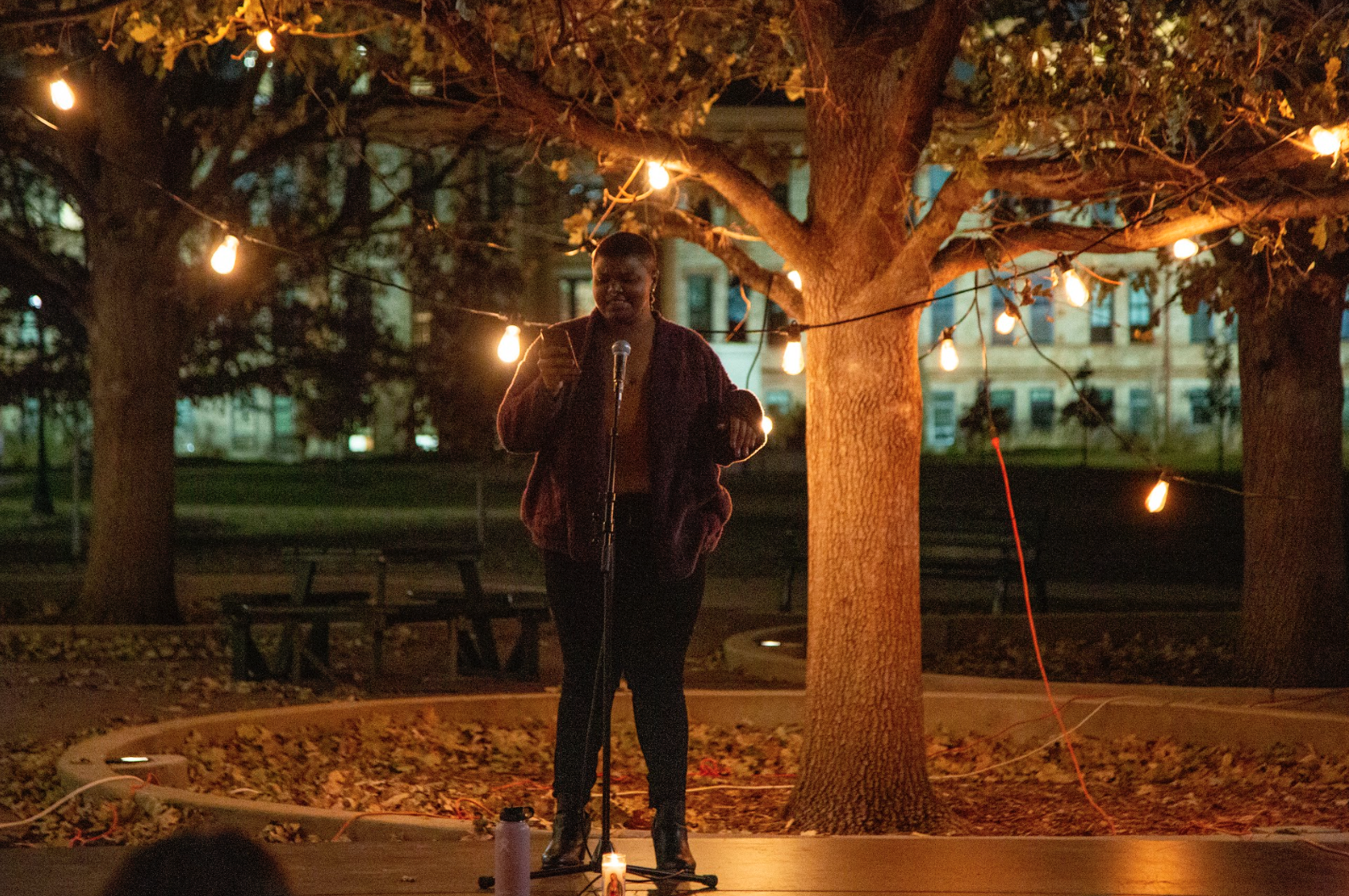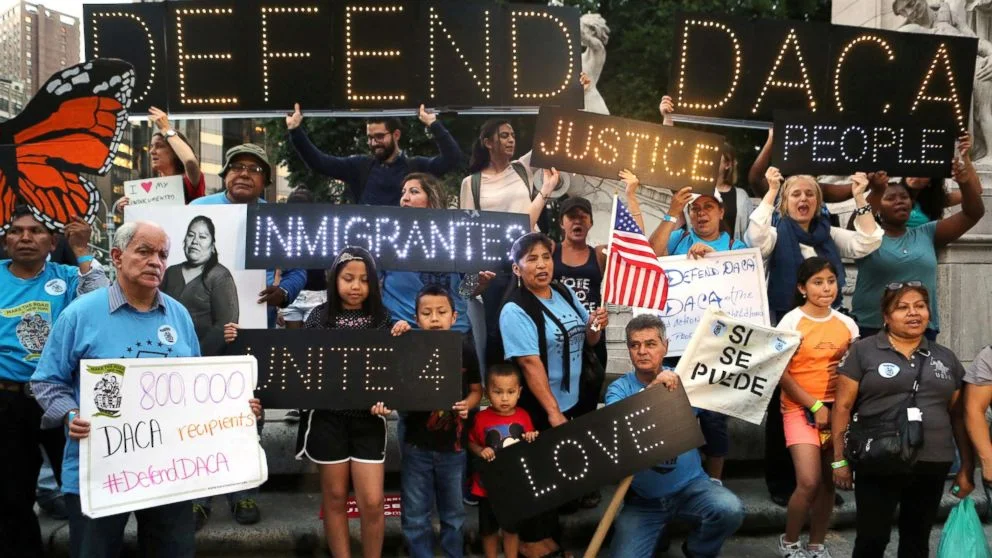This year’s social justice week is one of the most successful in recent memory due to the new unity project and increased attendance at events. Social justice week is an annual Regis tradition that began in the early 2000s, then hosted by the Social Justice and Spirituality Committee, which is now the Social Justice and Diversity Council.
Read MoreThe Peace Market
Photo Source // Amy Reglin
By: Rose Ferrie, Staff Reporter
For those of you who didn’t know, last week was social justice week, a time for education and fun events surrounding topics like sexuality, race, expression, intersectionality, and so much more. One of these lovely events was the peace market which was toward the end of the week. Though it was a chilly evening, people came out to listen to poetry and shop around at booths like Earth Links, Regis’ own crochet club, and more. Students were also invited to make their own essential oil blend and many people participated in the Unity Project, which was the beautiful yarn display up all week.
Photo source: abcnews.com
With DACA in Limbo, Students Fear Deportation
By Emily Summers, Practicum Reporter
Denise Maes, public policy director at the American Civil Liberties Union of Colorado, visited Regis University in November to discuss the current issue of immigration in our country. Maes addressed Deferred Action for Childhood Arrivals (DACA), as well as the Zero Tolerance Policy, with hundreds of students, faculty, and community members in the St. John Francis Regis Chapel.
Maes first shared the stories and experiences of a few DACA students, and explained the situation many students of similar circumstances are facing: the fear of deportation. She discussed the changes the United States has faced under the current administration and described DACA as “in limbo.” Maes stated that she is not confident that the Supreme Court will rule in favor of DACA.
She went on to further discuss immigration, specifically surrounding the Family Separation Policy in the U.S. After Trump’s executive order for a Zero Tolerance Policy, about three thousand children who had crossed the border into the United States were separated from their families. Maes explained the effects this separation had on these children.
“Every single child advocacy group … agrees that we have caused irreparable harm and trauma to these kids,” Maes said.
Following Maes, Regis faculty member Allison Peters read an anonymous story on behalf of a current Regis student. This student’s story depicted her life as an undocumented student in the United States. Growing up, this student explained her life, as an undocumented immigrant was full of fear and uncertainty. During her time at Regis, the student had received multiple threats, including death threats. Despite these obstacles, she has remained fairly optimistic.
“My story is one of thousands, but we are here, working for a better life, allies for those who stand for what is right. I, too, am a Regis student,” said Peters, reading the student’s remarks.
Two Regis alumni also spoke to the group about their experiences as undocumented students. Each person had a unique story.
The event soon turned toward questions and answers between the speakers and the audience.
The event, which was part of Social Justice Week on campus, stimulated conversation within the Regis community. Hearing the true, first-person stories from former undocumented immigrants themselves shed light on an incredibly relevant issue in our world today.
Dr. Damien Thompson addresses students at Regis University //Rose Ferrie
Colin Kaepernick and the importance of his message
By: Rose Ferrie, Staff Reporter
For those of you who didn’t know, this past week was Social Justice Week; there were many events pertaining to issues like feminism, anti-hate speech and sustainability. I attended an event regarding police brutality and Black Lives Matter. The Colin Kaepernick talk was a forum to open up the discussion about Black Lives Matter and police brutality, the criminalization of black men and men of color, and what Colin’s actions did for them.
I got to talk to Awah Tilong, the President of BSA, and a few of their members before the conversation to see what their goals were for this event. She said she wanted this to be a space for a productive conversation, for people to speak their truth, and be comfortable to disagree. Minds were not going to be changed in one conversation, maybe not ever, but this was a place to educate and increase apathy.
Once people had settled in, Damien Thompson, faculty advisor of BSA and professor here at Regis, set some ground rules for the night. This was a safe space, speak from the heart without judgement, listen from the heart with no need to agree, don’t rehearse your argument truly listen, be mindful of everyone and let all have a turn to speak.
This program was broken into 3 sections: “speed dating” (fast two person conversations), small group discussion, and a big group discussion. Talking one-on-one with people and asking how they felt about the Kaepernick situation was eye opening. One idea stuck with me and I have continued to ponder it: Did Kaepernick’s kneeling controversy end up distracting people from his initial purpose of raising awareness for police brutality against Black people? He may have had good intentions but his act of kneeling was twisted into a sign disrespect to America and its troops, his purpose was often lost in the media. He was able to disturb millions of Americans weekly Sunday rituals of watching Sunday football, he rocked that boat and started a conversation, just maybe not the one he was hoping for.
The conclusion of the night was that the criminalization of Black boys and men is a serious issue and Colin Kaepernick leveraged his social positioning to make a statement by kneeling during our national anthem. This situation was ostracized from being a peaceful protest for police brutality to disrespecting America and American troops. We are so patriotic that we disregard the racism right in front of us. Racism is rampant and blatantly so in the acts of brutality that affect African American men and boys as well as other men and boys of color. I do not wish to change anyone’s feelings about this situation, the goal of this conversation was not to prove a right or wrong but to get to the root issue: not every American is equal. The importance of what Kaepernick did and what this talk concluded with is that we need to address the attack on boys and men of color. They are being killed because of what they look like by people who should be protecting them. They are Americans and we need to live up to “liberty and justice for all”.
Regis IFTJ traveling team in Washington DC at the Jefferson Memorial. //Photo courtesy of Natalie Nielsen
Advocacy Is For Everyone: Lessons from IFTJ
By: Catie Cheshire, Co-Editor in Chief
As part of social justice week, students who attended the Ignatian Family Teach-In for Justice (IFTJ) in Washington D.C. November 3-5 shared reflections on their experience and plans for future action in an event called “IFTJ, Action, and Healing.” Not everyone who went on the trip participated in the event, but it began with those who did (Natalie Nielsen, Anahi Ramos, Ethan Strouse, Amelia Rouyer, and Kate Penick) sharing memorable moments are lessons learned.
The conference is two days of breakout speakers and advocacy training with a focus on the Jesuit values that can influence how we discuss policy with our elected representatives. The final day of the conference is devoted to meeting with policy aides on the hill and using the advocacy skills learned at the conference. The theme of this year’s conference was Discipleship at the Crossroads.
“The community of Jesuit schools was impressive to me,” Penick said. “The common background we all come from was special throughout the weekend.” Strouse seconded her thoughts with a comedic story about the “mass Mass” that took place Sunday evening on the second day of the conference. That many people from Jesuit educational backgrounds coming together is something unique about ITFJ that Regis students felt defined the conference.
Despite the fact that every breakout session or keynote relates social justice issues back to Jesuit values, Ramos stressed the variety of topics available for conference-goers to pick from. Ramos has gone to IFTJ twice now, and said that this time around she was able to learn about different subjects than she had before. She also stressed that advocacy isn’t nearly as intimidating as she thought.
“The nerves disappear once you’re in the conversation and can share your stories and views and be heard by people who have a say,” Ramos said. For Nielsen, who has attended IFTJ three times and was the student leader of the trip this year, her growth within advocacy from year one to year three of IFTJ has encouraged her to consider a career in politics after she graduates from Regis.
Nielsen used her third year as a chance to learn from others. She expressed that, for her, a lot of the experience was listening to what others are doing and trying to figure out how to bring that back to Regis.
For that reason, the second half of the event focused on actions. The participants shared DOs and DON’Ts for advocacy, and introduced a new event that will take place at Regis in the Spring: Advocacy Day. During Anti-Oppression Week one day will involved Regis students lobbying on Capitol Hill here in Denver.
The other action was participants at the even writing letters to Casa de Paz, an organization that provides support for people whose family members are detained or are coming out of detention centers. Casa de Paz is a local organization that has helped over 1,000 families and counting. The letters were written to express solidarity for people unjustly held in detention and will be delivered to families soon.
Photo source: spiritedwellbeing.com

